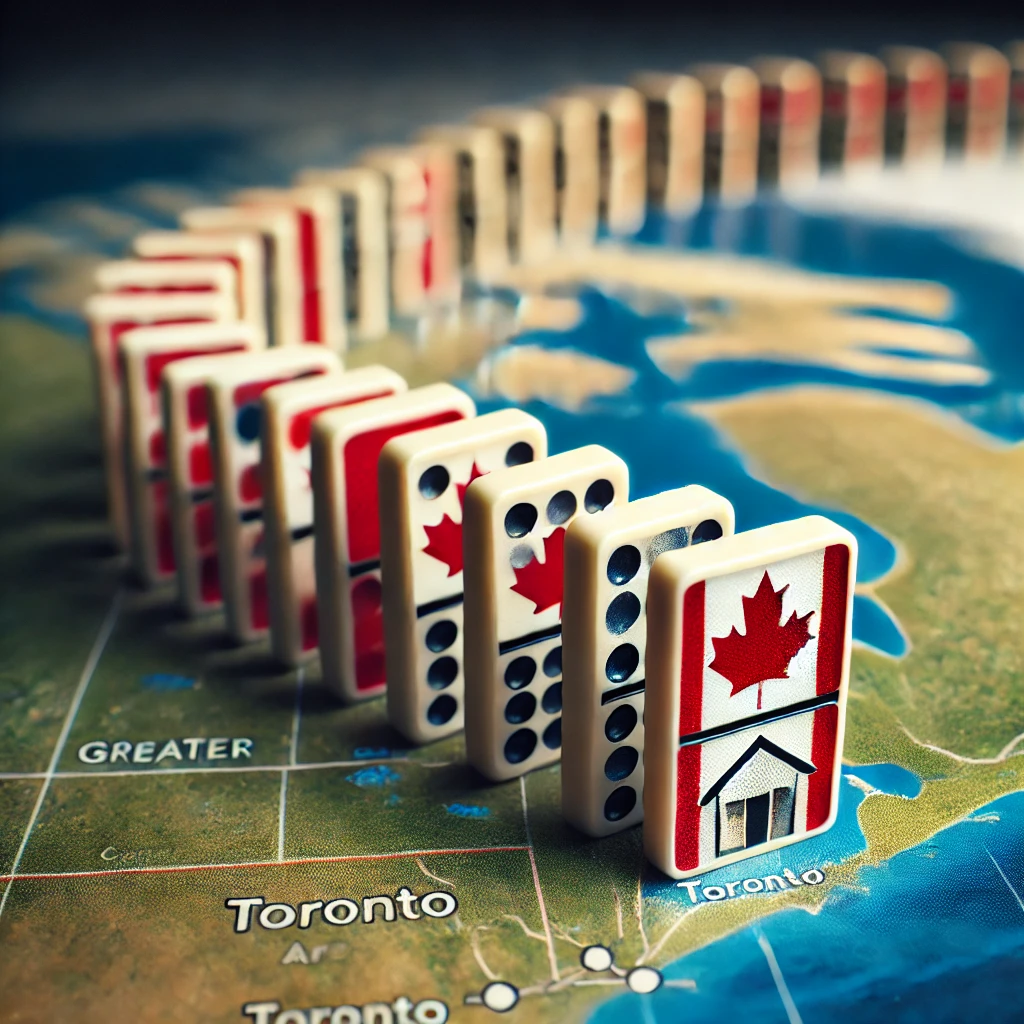Domenic Gallippi
Mortgage Agent Level 2 - M23007938
domenic@bettermortgagesbydom.ca
Tel: 416-801-6616 | Cell: 416-801-6616
Domenic Gallippi
Mortgage Agent Level 2 - M23007938
domenic@bettermortgagesbydom.ca
Tel: 416-801-6616 | Cell: 416-801-6616
When you're thinking about buying a home in the GTA, your focus is naturally on local factors: neighbourhood prices, school districts, and your down payment. The idea that trade negotiations with the U.S. could affect your mortgage rate can feel abstract and distant.
However, in our interconnected world, these high-level economic factors have a direct and tangible impact on the housing market right here in Toronto. With ongoing trade tensions making headlines, it's important to understand the chain reaction that can influence your borrowing costs and buying power.
Here’s a simple breakdown of how it all connects.

It’s not a direct line, but a series of cause-and-effect steps:
Tariffs Impact the Economy: When tariffs are imposed on major Canadian exports (like steel, aluminum, or lumber), it makes our goods more expensive for our largest trading partner, the United States. This can lead to decreased sales for Canadian companies, potentially causing slower business investment and, in a worst-case scenario, job losses.
A Slower Economy Worries the Bank of Canada: The Bank of Canada (BoC) has a primary mission to keep the Canadian economy healthy and inflation on target. If it sees significant economic headwinds—like a trade dispute slowing down the entire country—it will use its main tool to stimulate activity.
The Bank of Canada Cuts its Rate: To encourage borrowing and spending, the BoC will lower its overnight lending rate. This is the very rate that directly influences variable-rate mortgages and the prime rates at all major banks.
Bond Markets React: In anticipation of a weaker economy, investors often flock to the safety of government bonds. Increased demand for bonds pushes their prices up and their yields down. These bond yields are what fixed mortgage rates are primarily based on.
The Bottom Line: Economic uncertainty caused by trade disputes often leads to a lower-rate environment for both fixed and variable mortgages.

The other major factor is buyer and seller confidence. Widespread news about economic trouble can make people nervous. Potential buyers might worry about job security and decide to put their home search on hold. Sellers might become anxious about prices falling and rush to list their properties.
This combination of lower rates and cooled-down confidence can create a "balanced" market, much like the one we seem to be experiencing now. It's a market where buyers have more negotiating power, but the underlying financial conditions (lower rates) are actually more favourable.

You don't need to be an economist to navigate the market, but understanding these forces can help you make smarter decisions. It means recognizing that the mortgage rates you're being quoted today are directly linked to the broader health of the Canadian economy.
It also means that in times of uncertainty, having a locked-in Pre-Approval is your best friend. It allows you to shop with confidence, knowing you're protected from any sudden market shifts. If you have questions about how the big picture affects your personal homeownership plans, let's talk.
Ready to discuss your home ownership goals and a Better Mortgage by Dom?
Call/text: 416 801-6616. Email: Domenic@BetterMortgagesByDom.ca
Connect/Follow me: Facebook, Instagram, X (formerly Twitter), LinkedIn
Download my app - featuring premium interactive tools, calculators, and illustrators for smart planning and real-time rate updates
Please share with anyone that you think can benefit from my help - all introductions are greatly appreciated!